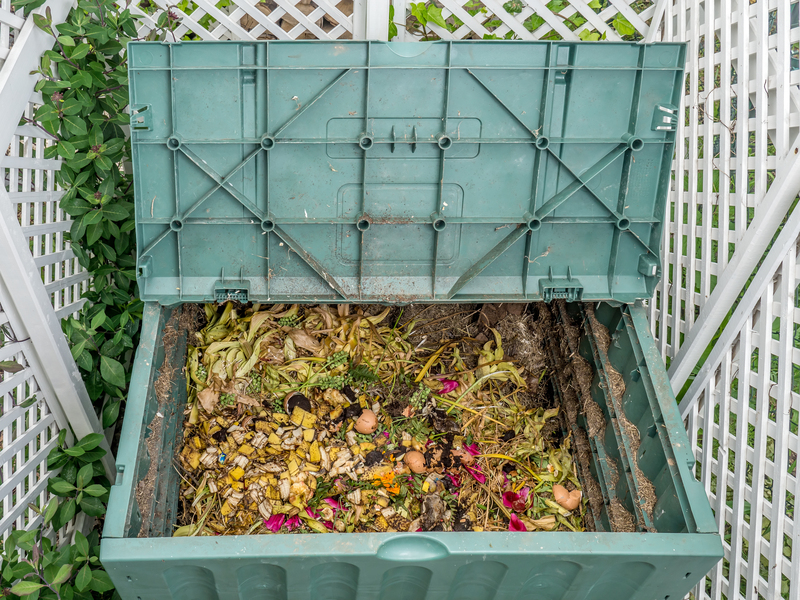Simplifying Skip Hire: Important Dos and Don'ts Uncovered
When it comes to managing waste, hiring a skip has become one of the most efficient and practical solutions. Whether you're conducting a home renovation, clearing out a garden, or tackling a major construction project, taking time to understand the ins and outs of skip hire can save you money, time, and headaches. In this comprehensive article, we'll uncover the essential dos and don'ts of skip hire, provide expert waste removal tips, and guide you on making the most out of your skip rental experience.
Why Choose Skip Hire? The Perks and Practicalities
Skip hire, also referred to as skip bin hire or waste container rental, is an essential service for both homeowners and businesses when handling large volumes of waste. But why is it such a popular waste disposal solution?
- Time-saving: Disposing of waste in one go is far more efficient than multiple trips to the tip.
- Cost-effective: Skip hire is typically cheaper than the fuel and effort required for self-transportation of rubbish.
- Eco-friendly: Professional skip companies often have recycling initiatives, ensuring as much rubbish as possible avoids landfill.
- Safe and Clean: Keeps your site safe from trip hazards by containing all debris in one place.
However, to reap these benefits, understanding the right approach is critical. Let's begin by breaking down the important dos and don'ts of skip hire.

The Essential Dos of Skip Hire
1. Assess Your Waste Before Ordering
Choosing the right size and type of skip starts with a clear understanding of what you intend to dispose of. Not all skips are suitable for the same materials.
- Separate Your Waste: Identify whether you have general waste, garden waste, builders waste, or hazardous waste.
- Keep It Legal: Many skips prohibit items like asbestos, batteries, and electrical equipment due to safety regulations.
Pro Tip: When in doubt, consult your skip hire provider to understand what is and isn't allowed.
2. Choose the Right Skip Size
Overestimating or underestimating the size can lead to unnecessary expenses. Skip sizes generally vary from mini, midi, to maxi skips.
- Mini skips (2-3 yards): Perfect for small domestic clearances.
- Midi skips (4-6 yards): Ideal for kitchen or bathroom renovations.
- Builder's skips (8-12 yards): Great for large construction projects.
Tip: If you're unsure, opt for a slightly larger skip to avoid overflow fees, as you can't overfill a skip beyond its rim.
3. Site Your Skip Appropriately
Selecting a suitable spot for skip placement is crucial:
- Accessible Location: Ensure the skip lorry can safely deliver and collect the container.
- Legal Permitting: If your skip is placed on a public road, a permit from your local council may be required.
- Safety First: Avoid obstructing public pathways and ensure clear signage or lighting at night.
4. Fill Your Skip Efficiently
To maximize the space and value of your skip, load your items strategically:
- Break Down Bulky Items: Dismantle furniture or large items for a better fit.
- Compact Waste: Place heavier and flat items at the bottom.
- Load Evenly: Spread waste evenly to avoid tilting or unsafe loading.
5. Recycle Where Possible
Before tossing everything, separate recyclable items like metals, plastics, and electronics. This not only benefits the environment but may also reduce disposal costs.
The Most Critical Don'ts of Skip Hire
1. Don't Overfill Your Skip
By law, skips should not be filled beyond the "level load" mark. Overloading creates hazards during transportation and often incurs extra charges or even refusal of collection by the skip company.
- Hazard: Overfull skips risk dropping debris onto roads or pedestrians.
- Consequence: Possible fines and delays in waste removal.
2. Don't Dispose of Prohibited Items
Certain materials are strictly forbidden in skips for health, safety, and legal reasons. Here's a quick list of common prohibited items:
- Asbestos
- Batteries
- Tyres
- Fridges/freezers
- Paints and solvents
- Fluorescent bulbs
- Medical waste
- Liquids and fuels
Always check with your local skip hire provider for a comprehensive prohibited items list to smooth your waste disposal process.
3. Don't Forget About Permits
If your skip will be placed on a public road, pathway, or any council-managed land, obtaining a valid skip hire permit is mandatory. Placing a skip without a permit can result in hefty fines and forced removal.
4. Don't Burn or Compact Skip Waste
Setting fire to rubbish inside your skip is dangerous, illegal, and can damage the skip, leading to additional charges. Similarly, using machinery to crush waste further into the skip risks both personal safety and container damage.
5. Don't Use the Skip as a Community Dump
While you might be willing to share some skip space with neighbours, beware of fly-tipping. Only dispose of your own licensed waste. Holding others' rubbish can invalidate your agreement with the skip hire company and cause complications at disposal facilities.
How to Select the Best Skip Hire Company
Choosing the right provider is just as important as understanding skip usage. Here are key factors to consider:
- Licensing and Credentials: Ensure the provider is licensed and complies with local waste disposal regulations.
- Reputation: Seek reviews or testimonials for reliability and customer service.
- Transparent Pricing: Avoid hidden fees by asking for clear breakdowns up front.
- Wide Range of Skip Sizes: A variety of skip options ensures you get the best fit for your project.
- Prompt Service: Efficient delivery and collection times can make your cleanup seamless.
Skip Hire Permit Guide: What You Need to Know
If you're putting the skip on private property (like your driveway), you usually don't need a permit. However, skips on public property require official permission. Here's what to expect:
- Permit Application: Most skip hire companies can arrange the permit on your behalf.
- Timing: Permits can take 2-7 days to process, so plan ahead.
- Duration: Permits are typically valid from 1 week to 1 month, with extensions available for a fee.
- Cost: Prices vary by council but generally range from ?20 to ?60+ in the UK.
Failure to obtain a skip permit when required can result in council fines, so it's best to check with your provider and local authority before placing the order.
Environmental Responsibility: Skip Hire and Recycling
The environmental aspect of skip rental is increasingly important. Many skip providers partner with recycling centers and work diligently to minimize landfill.
How You Can Help
- Sort Before Filling: Separate plastics, wood, glass, and metals. Some companies offer recycling-specific skips.
- Ask Your Provider: Enquire what percentage of collected waste is recycled and what their policies are.
- Reduce, Reuse, Recycle: Before disposing of items, consider what can be donated or sold.
Frequently Asked Questions about Skip Hire Simplified
Can I Hire a Skip for a Single Day?
While most skip rentals cover periods from 3 to 14 days, some companies offer flexible or same-day skip hire. Always confirm rental duration and any additional day charges before booking.
What If I Need an Extra Skip?
If your project generates more rubbish than anticipated, contact your skip provider as soon as possible to arrange for collection and/or an additional skip.
Is There a Weight Limit for Skips?
Yes, every skip size has a maximum safe loading weight (especially for heavy items like soil or concrete). Overloading not only risks extra charges but can make collection impossible.
What Happens to My Rubbish Afterwards?
Once collected, reputable skip hire services transport your waste to licensed facilities for processing and recycling, with non-recyclable leftovers sent to landfill or other disposal sites.
Final Checklist: Do This, Avoid That!
- Do: Plan your clear-out and order the correct sized skip in advance.
- Do: Check with your waste provider about prohibited items.
- Do: Fill the skip carefully, making use of all available space.
- Do: Arrange permits when leaving skips on public property.
- Do: Look for eco-friendly skip companies with high recycling rates.
- Don't: Overfill your skip or exceed weight limits.
- Don't: Dispose of dangerous or hazardous materials in skips.
- Don't: Assume you can place a skip anywhere without necessary permissions.
- Don't: Allow others to dump unapproved waste in your hired skip.
- Don't: Delay arranging collection when your skip is full to avoid extra fees.

Conclusion: Making Skip Hire Simple & Effective
Hiring a skip doesn't have to be complicated. By understanding the key dos and don'ts of skip hire, acting responsibly, and partnering with a reputable provider, you can streamline your rubbish disposal and ensure a safe, legal, and environmentally conscious process. Plan ahead, ask questions, and keep our guide handy to make your next clean-up as stress-free as possible.
Ready to simplify your skip hire experience?
Whether you're a homeowner tackling clutter or a contractor managing construction debris, follow these expert tips and you'll benefit from a hassle-free skip rental, helping your project run smoothly from start to finish.
Further Resources
- Contact your local council for skip licensing information.
- Visit the Environment Agency's website for safe waste disposal guidelines.
- Check with your provider about same-day and eco-friendly skip hire options.
Simplifying skip hire is easy when you know what to do--and what to avoid. Armed with this knowledge, you'll be able to handle your project's waste effectively, ethically, and with total peace of mind!